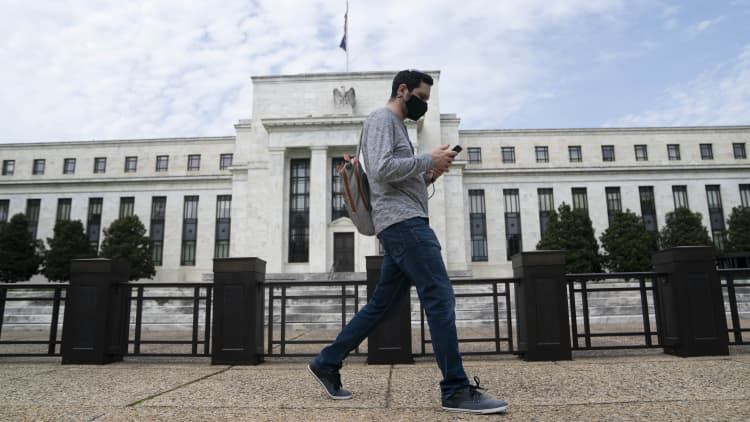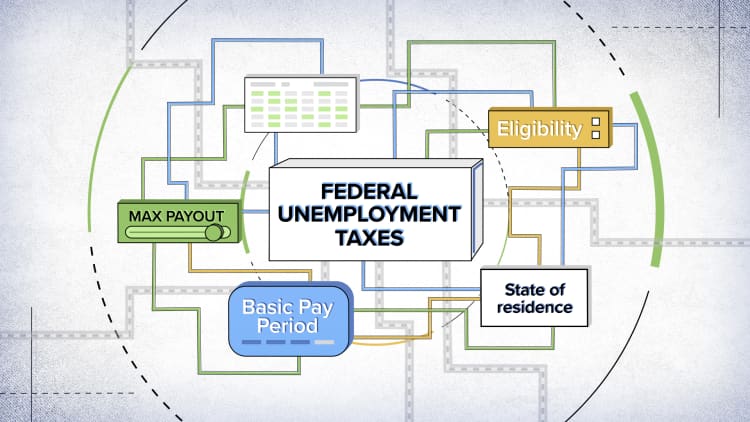
Mass unemployment that has accompanied the coronavirus pandemic has been compounded by people who don't want to come back to work, the Federal Reserve said Wednesday in its periodic summary of the national economy.
With the unemployment rate through April at a post-World War II record 14.7% and 20.5 million layoffs during the month, workers are reluctant to head back to their jobs for a number of reasons, the central bank noted in its "Beige Book" report.
The report also cited a generally downbeat outlook from business contacts regarding hopes for a recovery.
Business leaders "cited challenges in bringing employees back to work, including workers' health concerns, limited access to childcare, and generous unemployment insurance benefits," the report said.
Nearly 40 million people have submitted unemployment claims since the coronanvirus was declared a pandemic in mid-March, and more than 25 million have been receiving benefits for at least two weeks, according to the Labor Department. The government has responded with aggressive benefits programs that pay many workers their regular benefits plus $600.
In addition, the Paycheck Protection Program provides business loans to retain workers for eight weeks.

The Fed report noted that the PPP "helped many businesses to limit or avoid layoffs, although employment continued to fall sharply in retail and in leisure and hospitality sectors." Banks have seen "strong" demand for the loans.
Broadly speaking, the economy "declined" across all 12 Fed districts "falling sharply in most" amid plunges in activity for retail and the leisure and hospitality sectors. While auto sales were "substantially lower" than last year, some areas did report improvement since the last Beige Book report on April 15.
There also was a lack of optimism about the future.
"Although many contacts expressed hope that overall activity would pick-up as businesses reopened, the outlook remained highly uncertain and most contacts were pessimistic about the potential pace of recovery," the report said.
The agriculture and energy industries also reported strong declines as energy prices have plummeted and production at meatpacking facilities was slowed by coronavirus infections that shut down some of the biggest processing plants.
Real estate also took a big hit, as sales "plunged" due in part to a lack of inventory and restrictions on showings across much of the country. Commercial real estate owners noted a large number of tenants who missed or deferred payments.



